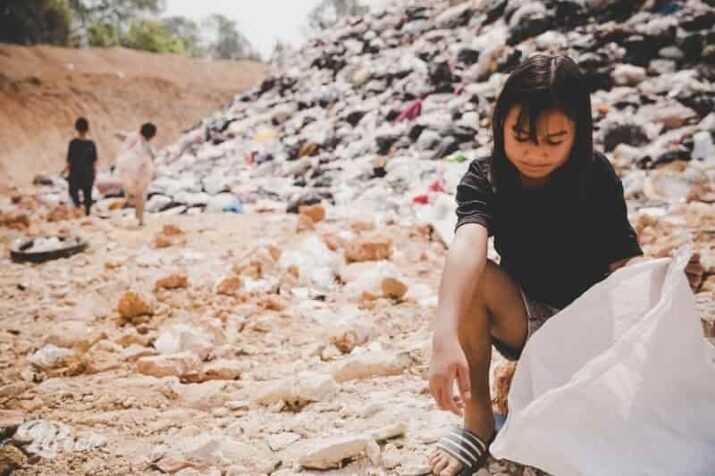Effects of Poverty on Societies and Social Justice Efforts
Effects of Poverty on Societies and Social Justice Efforts
The Impact of Poverty on Societies and the Fight for Social Justice
Poverty is one of the most prominent humanitarian issues facing societies around the world. It is not limited to a lack of financial resources; it also encompasses deficiencies in education, healthcare, and economic opportunities. Affects all aspects of life, from mental health to social stability, making it essential to address this issue comprehensively. In this article, we will discuss the impact on societies and explore the importance of combating social injustice as a means of alleviating the effects, along with providing practical recommendations to face these challenges.

Defining Poverty and Its Forms
Defining
Poverty is a state of economic and social deprivation where individuals or families lack the resources necessary to meet their basic needs, such as food, shelter, and healthcare. can also be defined as the inability to access opportunities and resources that contribute to improving one’s quality of life. It is not merely a financial shortfall; it is a condition that includes the absence of opportunities and empowerment, leading to instability and anxiety. It is measured according to certain income standards, but it is also crucial to consider the social and cultural factors that play a role in determining the level.
Forms of Poverty
There are several forms, including:
- Absolute poverty: This is when individuals live below a certain income threshold, preventing them from meeting their basic needs. This type profoundly impacts individuals’ daily lives, as they suffer from a lack of food, shelter, and healthcare.
- Relative poverty: This occurs when an individual’s income is less than the average income of the community, leading to their marginalization. Individuals living in relative poverty may have some resources but still struggle to meet their needs compared to their peers, affecting their sense of belonging and dignity.
- Multidimensional poverty: This includes various forms of deprivation, such as education and health, where individuals live in environments lacking essential services. Addressing this form requires integrated strategies, as improving one aspect (like education) is insufficient if others (like health) continue to deteriorate.
The Impact of Poverty on Societies
Impact on Health
Poverty directly affects the overall health of individuals. Poor communities often lack adequate healthcare services, leading to the spread of diseases and higher mortality rates. Additionally, malnutrition results in impacts on children’s growth and development. In areas suffering from extreme rates of chronic diseases like diabetes and heart disease may be elevated due to limited access to healthy food and necessary medical care.
Moreover, contributes to the spread of infectious diseases, as poor communities lack appropriate health conditions. For instance, inadequate housing conditions can lead to respiratory diseases, while a lack of clean water may result in gastrointestinal illnesses. The psychological stress associated can also increase the likelihood of depression and anxiety, exacerbating health issues. Other health impacts include a lower life expectancy and higher child mortality rates.
Impact on Education
Education is one of the most crucial factors in combating poverty. However, poor families often struggle to provide quality education for their children. This leads to a cycle of persistent poverty, where children grow up to become uneducated adults, depriving them of economic opportunities. Students often face the inability to pay tuition fees, purchase school supplies, or even access schools.
Additionally, domestic violence and the psychological pressures resulting from poverty affect focus and academic achievement. Research indicates that students from low-income families face greater challenges in academic success, resulting in lower graduation rates. Quality education is the key to liberating individuals from constraints, but the lack of access makes it difficult for future generations to break free from the cycle. Significant investments in education are required, including teacher training and the provision of safe and suitable learning environments.
Impact on Social Stability
Poverty can lead to increased crime and violence within societies. When individuals feel hopeless, they may resort to illegal behaviors as a means of survival. This leads to societal disintegration and heightened social tensions. Studies indicate that communities experiencing high rates witness higher levels of crime, including theft and assault.
Furthermore, affects individuals’ sense of belonging and social identity. People in poor communities often feel marginalized, leading to increased social divisions and sectarian violence. At times, it can escalate conflicts among different groups, further increasing instability and hindering development. Enhancing social cohesion requires comprehensive strategies that address the roots and provide opportunities for everyone.

Combating Social Justice
Importance of Social Justice
Social justice refers to the fair distribution of resources and opportunities among all members of society. It aims to reduce social and economic disparities, thereby improving individuals’ quality of life. By promoting social justice, it is possible to reduce poverty and achieve sustainable development.
Achieving social justice requires structural changes in economic and social policies, where governments must adopt strategies aimed at promoting equality and providing opportunities for all. Policies should be based on transparency and accountability, ensuring that resources reach those who need them most. Promoting social justice also necessitates active participation from civil society and the private sector.
Strategies to Combat Poverty
Several strategies can be employed to fight poverty and promote social justice:
- Improving education: Quality, free education must be provided to all children, enabling them to secure better opportunities in the future. These strategies include supporting schools in impoverished areas and developing educational programs that target vulnerable groups. Education should also encompass life skills and vocational training to prepare youth for the job market.
- Enhancing job opportunities: Policies that support the creation of new jobs and provide necessary training for individuals should be reinforced. This includes supporting small and medium enterprises and offering vocational training programs. Incentives can also be provided to companies that employ workers from vulnerable groups, contributing to the reduction. Job creation strategies must also support innovation and promote a green economy.
- Providing healthcare: Healthcare should be accessible to everyone, regardless of their financial status. This can be achieved by strengthening health systems and providing comprehensive healthcare services, including screenings and treatment. Healthcare should also encompass mental health services, as mental well-being plays a crucial role in individuals’ lives. Good healthcare contributes to improving the quality of life and reducing rates.
The Role of Civil Society
Civil society plays a vital role in combating. Through non-governmental organizations and community initiatives, awareness of social issues can be raised, and support can be provided to those in need. These organizations offer direct assistance, such as food and clothing distribution, as well as work to influence government policies.
Awareness campaigns organized by these organizations are a crucial part of alleviation efforts, as they play a role in changing social attitudes and promoting positive change. By building partnerships with governments and the private sector, meaningful results can be achieved in addressing poverty. Strengthening collaboration between NGOs and local communities can contribute to sustainable outcomes.
Recommendations
Enhancing Education
Governments and local communities must work to strengthen education by providing comprehensive educational programs that meet everyone’s needs, especially vulnerable groups. The focus should be on improving educational quality in impoverished areas and increasing access to higher education. Scholarship programs and financial support for students from low-income families should be implemented. Educational programs should also include life skills to ensure that youth are well-prepared to enter the job market.
Improving Healthcare
Healthcare should be accessible and affordable for all. This can be achieved by strengthening health systems and providing comprehensive health services, including mental health care as part of general healthcare. Health policies should include strategies for prevention and treatment, contributing to improved public health. Raising health awareness among communities can reduce disease rates and enhance the overall quality of life.
Supporting Local Economies
Encouraging small and medium enterprises can help create new job opportunities, thereby reducing poverty rates. Financial support and training should be provided to ensure the success of these enterprises. Innovation should also be promoted through the establishment of business incubators that support local entrepreneurs. Focusing on local economic development contributes to sustainability and reduces reliance on external aid.
Increasing Awareness
Awareness and social justice issues should be raised through media campaigns and community initiatives. This can help change attitudes and promote social solidarity. Social media can be an effective tool for raising awareness and gathering support for issues. Workshops and seminars can also be organized to enhance knowledge about human rights and the importance of social justice.

Conclusion
Poverty is one of the greatest challenges facing modern societies, requiring comprehensive solutions that include education, health, and economic opportunities. By combating social injustice and enhancing job and educational opportunities, we can work towards a more equitable and balanced society. Addressing this issue is not merely a governmental responsibility; it requires active participation from all members of society. Through cooperation and awareness, we can transform challenges into opportunities and build a better future for everyone.







